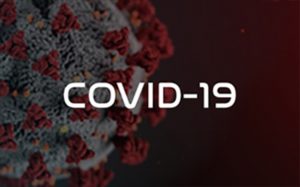The what and why of TRT?
Testosterone replacement therapy, TRT, is the art of replacing low or suboptimal testosterone levels, replenished back to normal levels that you had when you were a younger man. Men with low or suboptimal testosterone levels can experience a variety of quality-of-life-altering symptoms, such as fatigue, low energy, low motivation, low libido, erectile dysfunction, weight gain, loss of muscle mass, loss of strength, and loss of endurance. More importantly, low testosterone over the course of years and decades makes us more susceptible to the diseases of aging. The overriding concept of TRT is that treating men with Low or suboptimal testosterone levels not only improves quality of life but also improves long-term health outcomes.
What are the symptoms of low Testosterone?
Many men that we treat at Spartan Medical Associates in Charlotte, NC, and across North Carolina, present to us, exasperated by the symptoms they are experiencing. They don’t understand why they feel this way and frequently wonder if it’s in their head or just natural aging. Many are desperate for relief and feel vindicated and reassured when we educate them about how low levels of this vital hormone can cause these symptoms, and it’s no fault of their own.
When will I start feeling the difference?
A frequent question we hear is How long will it take for me to feel better? This, of course, is a nuanced answer because of the multitude of factors that can affect how someone feels. Baseline testosterone levels can play a role in how symptomatic someone is. We see men with frankly low levels in the 200s, but this is much less common than men who have suboptimal levels in the range of 300 and 600 ng/dl, total testosterone. There is a spectrum of symptom severity affecting men with frankly low levels, more so. However, low normal levels can cause very unpleasant symptomatology and warrant treatment for symptom relief and quality of life issues.
What affects the onset of symptom relief?
If a man’s baseline level is very low, you can expect symptom relief to take longer than for a man starting with higher levels. The form of testosterone replacement therapy also has an impact on the timing of relief. At Spartan Medical Associates, we generally recommend three forms of therapy: injection, transdermal creams, and oral preparations.
How is TRT administered?
By far, our male patients prefer subcutaneous injection as the route of administration. This is because this form of therapy is effective, inexpensive, and rapid. We typically use off-label subcutaneous injection of testosterone cypionate, which is much easier than the traditional intramuscular injection. Intramuscular injection uses a large needle, inserted into the muscle, and is quite unpleasant. Subcutaneous injection uses a tiny needle (27-31 gauge) and is administered in the subcutaneous fat, much like a diabetic would administer insulin. Because it is such an easy injection, administration can be done more frequently, typically three times a week. This is important because it gives a more advantageous pharmacokinetic profile, reducing peaks and valleys in the blood level.
Transdermal creams, applied daily or twice daily, will provide an even more steady state level in the blood, but are slower in onset due to slower absorption. Transdermal creams are more expensive and give less predictable levels, but can still be quite effective. Oral testosterone is a fairly new form of therapy, which is gaining popularity. Original attempts at oral TRT failed because the first-pass effect in the liver caused toxicity to the liver. The new form of oral testosterone (Brand name Kayzatrex) is formulated to be absorbed in the lymphatics, thus bypassing the liver and eliminating toxicity. This seems to provide predictable levels and good symptom relief, but it is more expensive than the other forms of treatment.
Why does TRT not work immediately?
Regardless of the route of administration, it takes time for blood levels to rise, typically 3 to 5 weeks to reach target blood levels. Additionally, testosterone is different from other traditional medications. For instance, if you take a blood pressure medicine, your blood pressure will be lower an hour later. Testosterone binds to the androgen receptors and slowly impacts change over the course of weeks and months. Most men will not notice much difference within a month after starting treatment, regardless of the administration form. However, rest assured, the medicine is working slowly and steadfastly. Men should be wary of claims of unrealistic expectations, like overnight transformation, and that TRT is a cure-all. TRT is long-term therapy, not a quick fix, and should be combined with an optimal lifestyle for the best results.
What can I expect?
Many of my patients, after one and two months of treatment, will start noticing effects and improved symptoms. Subtle early changes include increased energy, mental clarity, improved mood, reduced irritability, and better motivation for daily activities. Frequently, I hear anecdotes like I am more motivated at work and in the gym, I’m sleeping better and thinking more clearly, I am waking up with morning erections, and I’m interested in my wife again. This symptom relief can be quite uplifting for men who’ve been suffering for years with low or suboptimal testosterone, and this will continue to improve over the course of 1 to 3 years.
In months 1–2, noticeable symptom relief can come in the form of higher libido, improved sexual performance, better sleep quality, and more consistent energy levels throughout the day.
During months 3–6, a physical and emotional transformation can occur with increased lean muscle mass, reduced fat, stronger bones, improved joint comfort, enhanced confidence, and overall well-being.
Months 6–12 can bring the start of long-term health benefits, such as Improved cardiovascular health markers, improved metabolic markers, reduced inflammation, reduced insulin resistance, and maintenance of muscle, mood, and metabolic health.
What happens over time?
TRT has many positive impacts on the body that will continue to build between years 1-3 that including improved muscle strength, lean mass, reduced fat mass and waist circumference, increased exercise capacity, and bone density. These effects slowly occur over the course of years. Our goal at Spartan Medical Associates is to combine hormone replacement therapy with lifestyle modification, which is the recipe for long-term health success. We counsel about combining nutrition, exercise, evidence-based supplements, sleep regimens, etc., to obtain optimal long-term health outcomes. Our providers will follow your progress with regular lab checks to make sure you’re on track. Blood levels can change over time for a variety of reasons, and safety labs must be monitored, like PSA, hemoglobin, and liver function tests.
Who are we?
Spartan Medical Associates is a cutting-edge hormone replacement and longevity clinic operating in Charlotte, NC, and across North Carolina with heavy use of telemedicine to provide convenient and immediate care to our patients. Our Men’s Hormone Therapy program combines clinical expertise with a focus on longevity to help you achieve the best possible results. We treat men and women for symptoms of hormone deficiency and combine this with lifestyle modification to improve quality of life and long-term health outcomes. If you would like to speak with one of our specialists, you can schedule a free phone consultation with one of our providers to review your situation and see if you are a candidate. We look forward to building a better you!





